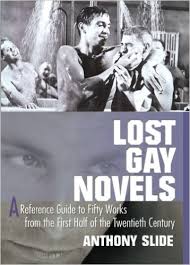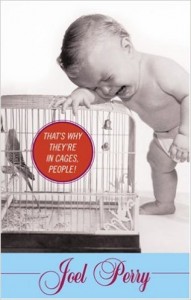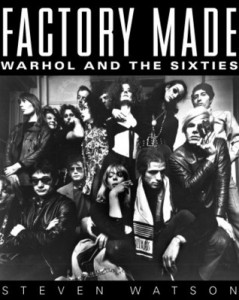 Lost Gay Novels: Reference Guide to Fifty
Lost Gay Novels: Reference Guide to Fifty
Works from the First Half of the 20th Century
by Anthony Slide
Haworth Press, 204 pp., $49.95 ($24.95 paper)
Slide offers plot summaries and contemporary reviews of fifty novels that appeared in the U.S. during the first half of the last century and are largely forgotten today. Most of them are American, though four are British and two were originally written in French. Some are by gay men, some not. Some focus on homosexuality, some treat it only tangentially or by implication. A few present it positively, most do not. Slide admits in his introduction that “the majority qualify as second-rate literature.” The lack of any apparent selection rationale makes this a somewhat frustrating volume if read cover-to-cover. Why did Slide choose these particular fifty? He describes some as extremely homophobic and others as trivial, so he doesn’t seem to be trying to construct a recommended reading list. He repeatedly mentions other gay novels from the period, so it’s clear that he wasn’t attempting to be comprehensive. On occasion he mentions that an author revised the novel in later years, but he never explains whether the revision affected the presentation of gay issues. This volume is perhaps best used as it is presented, therefore, as a reference work, a tool to check up on titles that one might run across in a gay context. The summaries will probably not entice many readers to search out the novels themselves, as they appear to contain all the homophobic stereotypes and moralizing common to their era, but in a few cases, the summaries provide a spur to further exploration. Perhaps it would be a worthy project to follow this book up with a guide to forgotten novels that are worth resurrecting from oblivion by students of gay literature.
Richard M. Berrong
 That’s Why They’re in Cages, People
That’s Why They’re in Cages, People
by Joel Perry
Alyson Publications. 309 pp., $14.95 (paper)
From the strobe-lit mind of writer and producer Joel Perry, author of Funny That Way and Going Down: The Instinct Guide to Oral Sex, this collection of essays—which mull over such matters as the best way to break in a pair of leather pants and why humans should come equipped with TiVO programming features—is a series of sustained, sparkling bursts of self-deprecating humor and irreverent wit. Whether he’s translating the canon of relationship lies—“Lie: You’re not my type. Translation: I’m so shallow I can’t be bothered with being open to new things or growth”—or arguing for the return of the Debbie Allen Dance Number to the Academy Awards show, Perry’s writing continually orbits around themes of isolation and the desire to belong. When blended with the author’s blunt, ornery humor, this theme is satisfying in a bittersweet way à la David Sedaris. Some of the collection’s best essays focus on various icons of gay culture, such as “gay pride”: “Pride is not something you buy or attend,” explains the author. “No, not even the festival itself is pride. It’s a party. You carry the pride. … Whether it’s going to the festival or anywhere else, always remember it’s BYO Pride. Cherish it. Honor it. Then decorate it with leather, spandex, feathers or just some SPF 15 and bring it on down to the party and work it!”
Tony Peregrin
 Factory Made: Warhol and the Sixties
Factory Made: Warhol and the Sixties
by Steven Watson
Pantheon. 512 pp., $27.50
Steven Watson is a cultural historian whose numerous books focus on the modernist impulse and its manifestations in 20th-century America. His first book, Strange Bedfellows, explored the introduction of artistic modernism in the early years of the 20th century. He’s written books on the Harlem Renaissance and the birth of the Beats. His book on Virgil Thomson and Gertrude Stein and the debut of Four Saints In Three Acts is a wonderful document of social history. Watson’s latest is Factory Made. True, there are already a lot of books about Andy Warhol, but the Factory years certainly fit in with Watson’s purview. Did modernism end in the 60’s? Andy famously got free labor out of some of his Factory workers—but there were lots of disturbed young-uns in the mix. Watson covers the years from 1964 to 1968 at the Silver Factory, and we meet the usual suspects: Lou Reed, Nico, Edie Sedgewick, Gerard Malanga, Paul Morrissey, Joe Dallesandro, Billy Name, Candy Darling, Baby Jane Holzer, Brigid Berlin, Ultra Violet, and Viva. Warhol got very famous as an artist in these years, and his tide lifted a lot of boats. Much of his career was a big “fuck you” to the art world, but that was the temper of the times, and his band of refugees at the Factory was his antidote to the official art scene of his earlier years. Factory Made is chock-full of black-and-white photos, including one of Andy at Truman Capote’s Black and White Ball, after which the world famously ended, at least as some people knew it.
John Mitzel





